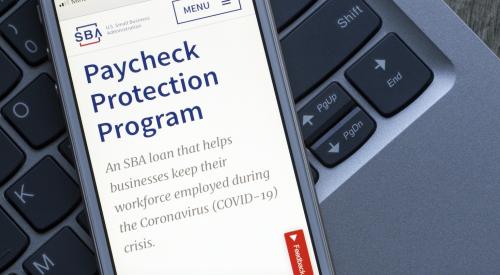Having a solid business credit score increases a business owner’s chances of securing capital to fund growth. Just like your personal credit score, your business credit score indicates whether you’re a good risk for paying your debts or not. It helps lenders assess whether you’re qualified for the loan amount you’re requesting and if you’ve been good at managing your company’s finances.
What Is a Business Credit Score?
A business credit score is a number that reflects the creditworthiness of your business. This number is calculated using several factors, including the number of years your business has been operating, the number of employees, historical data about the company, how much debt your business currently owes, and your past payment history. Your industry type is also often a factor in your business credit rating, too.
Your business credit report also provides necessary information about your company, such as your business background, ownership and subsidiaries, financial information, any bankruptcies, risk scores, and banking, trade, and collection history.
RELATED
- Lessons Learned From Previous Housing Market Disruptions
- Good or Great: What Distinguishes Good Home Builders From Great Ones?
- 15 Management Systems to Help You Avoid the High-Speed Wobbles
What makes your personal credit report different from your business credit report is that the latter may easily be accessed and viewed by the public. On top of that, building your business credit profile can give you access to myriad small-business loans without relying too much on your personal credit.
A high business credit score means lenders are more likely to approve you for a loan and that you will receive better interest rates on any money you borrow—and just the opposite if you have a low business credit score, including whether you qualify for financing at all.
Why Is Your Business Credit Report Important?
Like a personal credit report, your business credit report allows prospective lenders to assess your risk level as a borrower. They want to know if you’ll be able to pay back the money you’re borrowing from them and if your business is stable enough to keep operations running.
Your business credit report will start when your business is incorporated and you receive a federal identification number.
Take note that while there are a lot of factors affecting your business credit score, most lenders would prioritize one thing: your payment history. This tells lenders a bigger picture of your payment habits or whether you’re missing out on repaying debts.
For example, the Dun & Bradstreet business credit score only considers your previous repayment records when determining your business credit score.
What Your Business Credit Reports Tells Lenders and Others
When you apply for any type of financing, lenders will review your business credit report to determine your company’s creditworthiness, which simply means you’ve been paying your bills and debts on time and previous creditors didn’t encounter any problems with your account.
Using your business credit report, you will be evaluated based on several factors, such as your credit use, the number of debts you currently have, your debt repayments, and more.
Lenders aren’t the only ones that will use your business credit report to make decisions. Insurance companies will look for your business credit report as part of the underwriting process. Similarly, people who are considering engaging in a partnership with you will look at your business credit report before signing any contract.
What Is a Good Business Credit Score?
Before applying for a loan or any type of alternative financing, you first need to know where your business credit score stands.
Major business credit reporting agencies such as Experian, Equifax, and Dun & Bradstreet have their own scoring models for identifying a business credit rating. Even lenders have their own sets of criteria, so there’s no universal standard for what determines a good or bad score.
As a general rule, you must have a business credit score of at least 70 to increase your chances of getting a loan. If you think your current business credit rating is much lower than that, there are some things you can do.
How to Increase Your Business Credit Score
First, make sure you always make your payments on time. Even one overdue payment, much less being habitually late, is likely a red flag to lenders.
On top of that, try to reduce the amount of debt you have by paying off some of your debts or consolidating your debts into one loan with a lower interest rate.
Lastly, you must update your financial statements regularly. This will show potential lenders that you are keeping track of your finances and are a responsible business owner.
The Bottom Line
Improving your business credit score can be a challenge, but it is worth it if it means you can get the funding you need to grow your business. Be sure to talk to financial experts to better understand your credit profile and what financing solutions are available for you.

Matthew Gillman is a business financing expert with more than a decade of experience in commercial lending. He is the founder and CEO of SMB Compass, a specialty finance company providing education and financing options for business owners.













